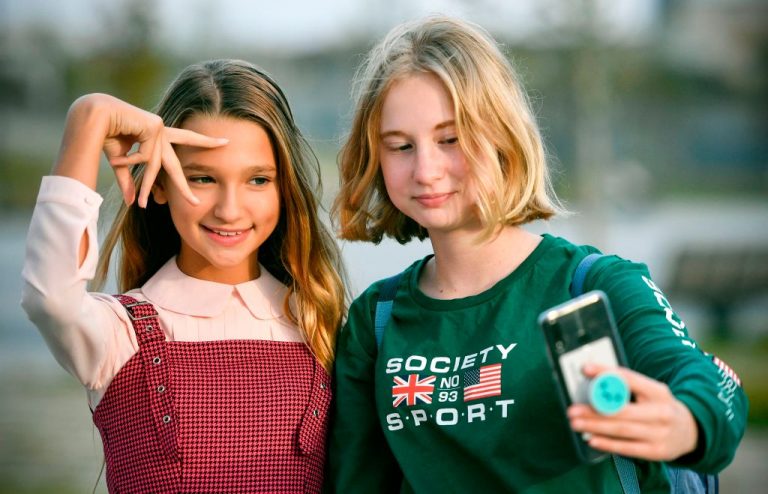The Attorneys General for 44 U.S. states signed an open letter to Facebook’s Mark Zuckerberg asking the founder to scrap plans to develop and release a version of Instagram catering to children under the age of 13.
“Use of social media can be detrimental to the health and well-being of children, who are not equipped to navigate the challenges of having a social media account. Further, Facebook has historically failed to protect the welfare of children on its platforms,” the letter states.
The call to action was data-oriented, containing 15 citations pointing out several key problems with a photo-centric social media app specifically targeting children, such as:
- Social media is designed to exploit young people’s desire for peer approval and fear of missing out;
- Instagram’s “relentless” focus on appearance and self-presentation as a danger to privacy and harmful to the well-being of adolescents;
- Frequent viewing of selfies leads to decreased self-esteem;
- One study found a 200 percent rise in targeting and abusing children via Instagram over a six-month period in 2018;
- Facebook and Instagram reported 20 million child sexual abuse images in 2020 alone;
- UK police found Instagram was used by predators more than any other platform for sexual grooming of victims;
- A “mistake” in Instagram’s marketing algorithm promoted dieting and appetite suppressants to users with eating disorders;
- A 2017 survey found 42 percent of young Instagram users had suffered cyberbullying on the app, more than any other social media network; and
- A report from 2019 showed kids between the ages of 6 and 12 were able to circumvent the restrictions on Facebook’s Messenger Kids app to talk with strangers.
The Attorneys General stated Facebook was not “not responding to a need, but instead creating one, as this platform appeals primarily to children who otherwise do not or would not have an Instagram account.”
Exploitation of children
A Facebook Community Standards Enforcement Report admitted that out of every 10,000 pieces of content on Instagram in Q4 2020, five violated the platform’s policy on child nudity and sexual exploitation.
Success
You are now signed up for our newsletter
Success
Check your email to complete sign up
Amanda Kloer from the group Parents-Together told Local12, “Last year alone, more than 45 million images were reported to the National Center for Missing and Exploited Children. That’s despite the fact that many tech companies don’t proactively look for a lot of this material.”
Kloer also said her organization has seen a 400 percent increase in reports since SARS-CoV-2 lockdowns began.
“It’s unfortunately pretty easy to find stories of people arrested for content shared or created on Snapchat or other social media platforms. Social media and gaming platforms are the primary ways that predators get in touch with children,” Kloer said.
Stress and suicides
Jean M. Twenge, a professor of psychology at San Diego State University, writes in The Atlantic that teenagers who spend three or more hours daily on electronic devices are “35 percent more likely to have a risk factor for suicide,” and that the increase in the rate of teen depression and suicide “can be traced to their phones.”
A 2019 study published at JAMA found that teen suicide rates between 1975 and 2016 saw the biggest percentage increases in girls aged 10 and 14, tripling between 1999 and 2014. The authors suggested that negative influences on social media could be a factor for the “sharp increases in suicidality among early adolescent girls.”
In a 2017 study, researchers looked at adolescent use of Instagram, which found a link between Instagram use and depression.
Bodily harm
According to a BBC report, Instagram bans content that glorifies, encourages, or promotes eating disorders. It also limits weight-loss product ads to users above 18 years of age. Users with eating disorders told BBC they are nonetheless constantly bombarded by diet plans, calorie counting posts, and other types of material exploiting eating disorders.
In 2017, 14-year-old Molly Russell from the UK committed suicide. Her father accused Instagram for the tragedy since her account showed Molly had frequently viewed material on suicide and depression despite Instagram’s official ban of the content.
In April, a coalition of 64 experts and 35 organizations led by the nonprofit Campaign for a Commercial-Free Childhood, wrote a similar letter to Zuckerberg, demanding he abandon plans for releasing a kids version of Instagram.
“While collecting valuable family data and cultivating a new generation of Instagram users may be good for Facebook’s bottom line, it will likely increase the use of Instagram by young children who are particularly vulnerable to the platform’s manipulative and exploitative features,” the letter stated.
Repeating YouTube’s mistakes?
According to Buzzfeed News, which reported Facebook’s plans to build an Instagram for kids back in March, the project is being led by Pavni Diwanji who joined Facebook in December last year. Before that, he worked at Google where he was in charge of YouTube Kids.
In 2019, the U.S. Federal Trade Commission (FTC) had fined Google and YouTube $170 million for violating the Children’s Online Privacy Protection Act (COPPA) rule by collecting personal information of children without the consent of their parents.
“YouTube touted its popularity with children to prospective corporate clients. Yet when it came to complying with COPPA, the company refused to acknowledge that portions of its platform were clearly directed to kids. There’s no excuse for YouTube’s violations of the law,” FTC Chairman Joe Simons had said in a Press Release.
















